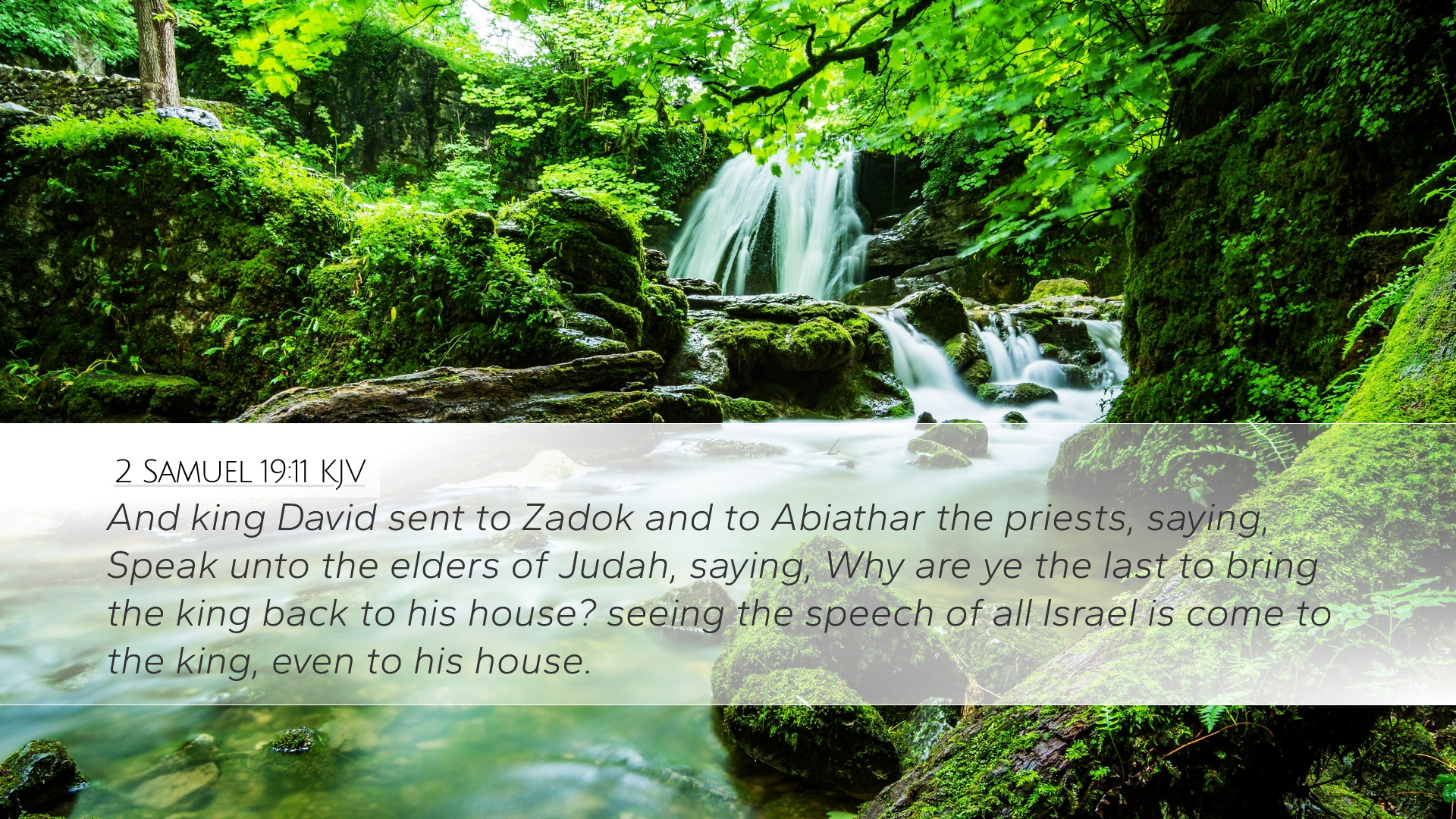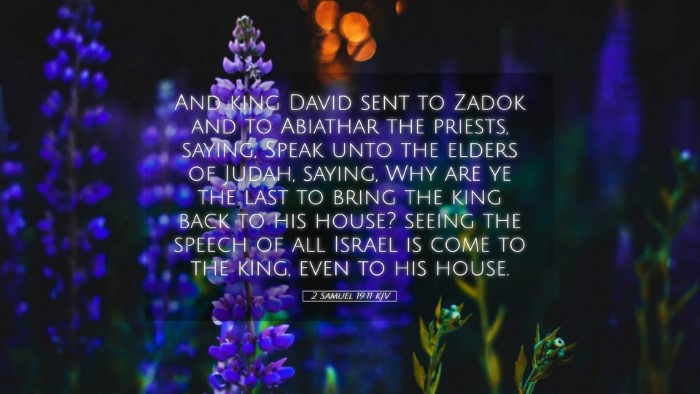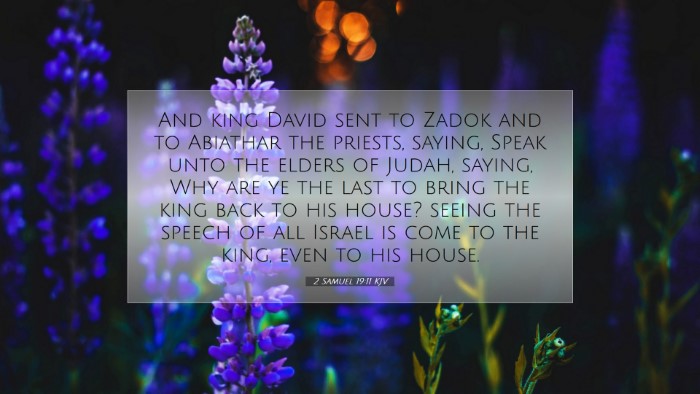Commentary on 2 Samuel 19:11
2 Samuel 19:11 states, "And king David sent to Zadok and to Abiathar the priests, saying, 'Speak unto the elders of Judah, saying, Why are ye the last to bring the king back to his house?'" This verse occurs in the context of David’s return to Jerusalem following Absalom's rebellion, encapsulating significant themes of leadership, reconciliation, and the importance of community in the life of the people of Israel.
Contextual Overview
The verse shows David communing with the priests Zadok and Abiathar, highlighting his reliance upon spiritual leaders. After the tumult of civil war led by his son Absalom, David seeks to stabilize his reign and restore unity among the people of Judah. The context of this passage serves as an important period of transition for David, marking his restoration as king and the rebuilding of his relationship with his followers.
Insights from Public Domain Commentaries
Matthew Henry's Commentary
Matthew Henry emphasizes David's concern for the elders of Judah, portraying the king’s leadership as one that is deeply rooted in community engagement. He notes the significance of David addressing the elders specifically, as they were pivotal in shepherding the people. Henry reflects on David's status during the rebellion and how it impacted the support of the tribe of Judah, implying a lesson on the importance of loyalty and timely action.
Albert Barnes' Notes on the Bible
Barnes highlights the political nuances of David's message, viewing it as both a call to action and a gentle rebuke. He notes that David’s question, “Why are ye the last?” serves as an inquiry into the elders’ loyalty and commitment. David seeks to clarify that, despite the turmoil, the leaders of Judah must rally together for the restoration of the kingdom. Barnes emphasizes the importance of promptness in response to God's calling, illustrating that allegiance and support can wane during times of uncertainty.
Adam Clarke's Commentary
Adam Clarke provides a deeper insight into the dialogue between David and the priesthood, suggesting that David’s address implies a level of restored authority. Clarke posits that this call for unity from the priests signifies their crucial role in guiding the populace post-rebellion. He also discusses the implications of leadership responsibility, emphasizing how David’s actions in this transitional time were vital for healing Israel’s fractured state. Clarke suggests that the elders’ delay in returning David may reflect a lack of decisive faith, drawing upon the essential nature of trust in God during crises.
Theological Reflections
This brief exchange captured in 2 Samuel 19:11 encompasses profound theological implications. It underscores the significance of leadership amid crisis and the adherence to divine authority. Each commentator draws attention to the relational dynamics present in David’s leadership style, illustrating a model that merges spiritual authority with community awareness.
Leadership and Accountability
The ethos David exhibits transcends mere kingship; it serves as a template for pastoral leaders today. The expectation of accountability among the leaders is made evident: they must watch over not only their own interests but seek the welfare of the community. This call challenges contemporary leaders to remain vigilant and responsive, especially during times of turmoil.
Community and Reconciliation
The passage calls for reflection on community, fidelity, and reconciliation. David’s urgent plea to the elders of Judah illustrates how leaders must navigate the complexities of restoring faith and trust among their people. In light of fallen leadership, it serves as a reminder of the importance of collective effort in healing wounds inflicted by conflict.
Conclusion
2 Samuel 19:11 is a rich text that invites us to reflect on the nature of leadership, the importance of community, and the process of reconciliation in the lives of believers. Insights from respected commentaries bring forth various dimensions of understanding this pivotal moment in David's reign. For pastors, students, theologians, and scholars, this verse urges us to embrace our accountability to each other and to God, echoing the timeless truth that true leadership lies in serving others with integrity and humility.


